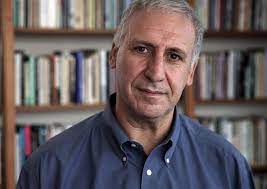
What is the number one trait of a true poet? Good question, and one which opens with talking points about the abstract (traits like “creativity”) vs. the concrete (harder-edged stuff, like “skills”). For the sake of argument, then, let’s dig in with skills.
Some skills you’d like to find in an accomplished poet’s toolbox might include the abilities to conjure through imagery, figurative language, and symbols. How about skills with openings and closings? Deft use of sound devices? Rhyme? Rhythm? Meter? Facility with words, language, sentence structures? Mastery of forms?
The head literally spins, but me, I’m going to go out on a lonely branch and pick something in the “word” category: the ability to make unexpected word pairings that first jolt and then resonate with the reader. As a reader of poetry, there’s nothing I like better. As a writer of poetry, there’s nothing I’m more proud of.
Examples? Let’s look at the first stanza of Edward Hirsch’s poem, “Memorandums”:
I put down these memorandums of my affections
To stave off the absolute,
To stave off the flat palm of the wind
Pressed against the forehead of night,
To stave off the thought of stars
Swallowed by the constellations of darkness.
Six lines, three unexpected word pairings, all novel and oh-so-pleasing to the mind’s insatiable desire for reverie. First we get the “flat palm of the wind,” then the personification of it being “Pressed against the forehead of night.” Wind with a palm? Night with a forehead? In a poem about memories of lost ones? Of course. Why didn’t I think of that? (Because I’m not Edward Hirsch.)
Then he finishes with “the thought of stars / Swallowed by the constellations of darkness.” Here we have the expected word, “stars,” but she is like an ignored former lover left at the curb as “constellations” drives off with its new beau, “darkness.” One doesn’t ordinarily think of “constellations of darkness,” especially ones that swallow the very thought of stars, but its perfectly tuned for the dark subject of loved ones who have gone before us. Our memories of them can be traced like lines between stars, but they are frustratingly swallowed by the final stubbornness of night.
When I read poetry, this is what stops me. Makes me read again. And again. Unexpected word pairings. True poets have the knack, and reading their works is why poetry readers have a strong advantage over the humdrum masses slapping each others’ backs over the latest novel.
Ho-hum. They know not what they’re missing.